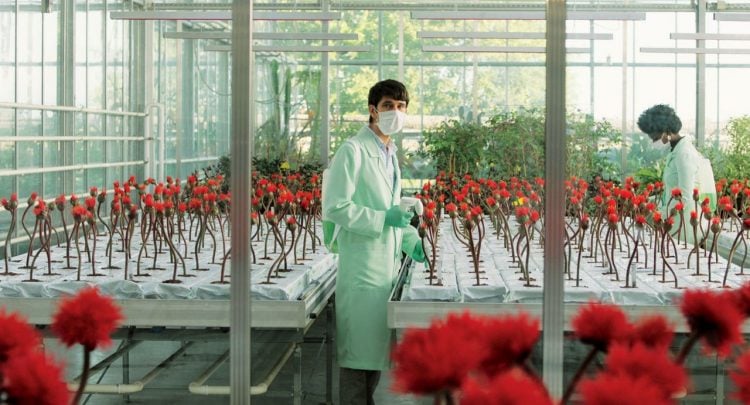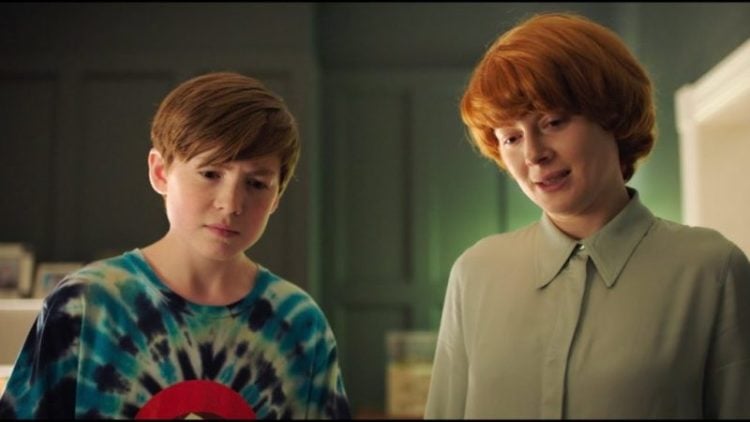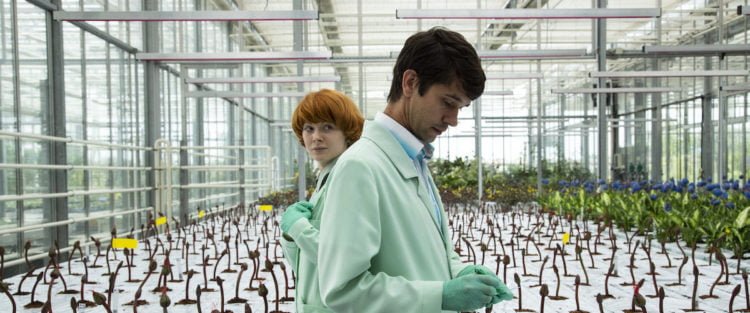
What if you woke up and your friends, family, and neighbors had been replaced by replicas that looked the same but exhibited behavioral oddities? This question has fueled countless sci-fi stories, from classics like the brilliant and paranoid Invasion of the Body Snatchers (watch the 1956 original, the 1978 remake misses the point of the story) to Blade Runner, where the replicants are “more human than human” (is Deckard a replicant or not?) to the terrific HBO series Westworld. In The Stepford Wives (1974) the replacement wives are intended to make the men’s lives better (creepy AF but that’s why the premise is so strong). In John Carpenter’s 1982 remake The Thing the alien can shape-shift and replace anyone stuck in the Antarctic research base. Underlying it all is the basic question Are you who I think you are?
The latest movie to wrestle with this is a moody Euro sci-fi thriller called Little Joe and it’s surprisingly effective, albeit paced so slowly that you might have to resist the urge to fast forward now and then. Or just succumb to the siren song of the plant’s happiness pollen…

Driven single mother Alice Woodard (Emily Beecham) is a plant breeder at a botanical research facility focused on creating popular new species through gene splicing and DNA manipulation. Competing with other researchers for a coveted spotlight at an upcoming flower show, she’s created a strange looking red flower that reacts to human interaction by emitting human “happiness” hormones. A single mother, she surreptitiously brings home one of these flowers for her teenage son Joe (Kit Connor) to nurture, presumably hoping he’ll be more sympathetic to her near constant work schedule.
The plant has been engineered so that it’s unable to reproduce but all life seeks to reproduce. As Dr. Ian Malcolm (Jeff Goldblum) memorably says in Jurassic Park “life finds a way”, and in this case, the plant finds a way to reproduce anyway: by infecting and then rewiring the brains of anyone who inhales its pollen.
Given this, was it really a good move for Alice to give one of these plants to her son Joe? It’s no surprise when he soon begins to exhibit strange behaviors that might be attributed to adolescence rearing its ugly head, but it might be something more, something sinister. Aided by his oddly unemotional girlfriend Selma (Jessie Mae Alonzo), Joe really grows to appreciate the beauty and calming influence of “Little Joe”, as the plant has been named, perhaps too much so when he begins showing it off to friends and schoolmates.

Meanwhile, at the research facility, Alice finds herself attracted to research assistant Chris (Ben Whishaw). They bond even as they watch mentally unstable research aide Bella (Kerry Fox) become increasingly paranoid about what’s really happening with the new flower species. With Bella as the voice of doom and Alice’s increasing concerns about what’s going on around her, all the elements of a classic identity thriller are present, from characters who start out with odd behavioral tics to ominous overheard conversations and glimpses of strange activities.
Where Little Joe shines is in the moody setting and extraordinary use of color. The setting and research facility are terrific, with a primarily mint green palette used for both costumes and the research facility. Red denotes the danger in scenes, starting with the color of Little Joe’s flower. The muted green updates and evokes the 50s medical lab from The Shape of Water.
The core problem with Little Joe, however, is the pacing. Some films take their time to establish the story and move the narrative forward, but this movie is a bit too slow, and you’ll be yearning for more action. Or at least a few more creepy scenes. The comeuppance is also extraordinarily predictable, particularly if you’re a fan of this sub-genre.
These films are about identity and individuality: If you could lose your individuality but be a happier person, would you do it? There’s a paranoia inherent in this type of story too, as more and more people seem to be affected by the alien, robot, mind-control, or what-have-you. Is Bella right with her rantings? Is Alice right? Is the plant really affecting people? And does it really matter that much if everyone’s becoming happier and more content?
Unfortunately, this is a visually engaging film but by the time you get through Little Joe, you just might not care who’s affected and who’s unaffected by the creepy little plant and its spores…
![]()
